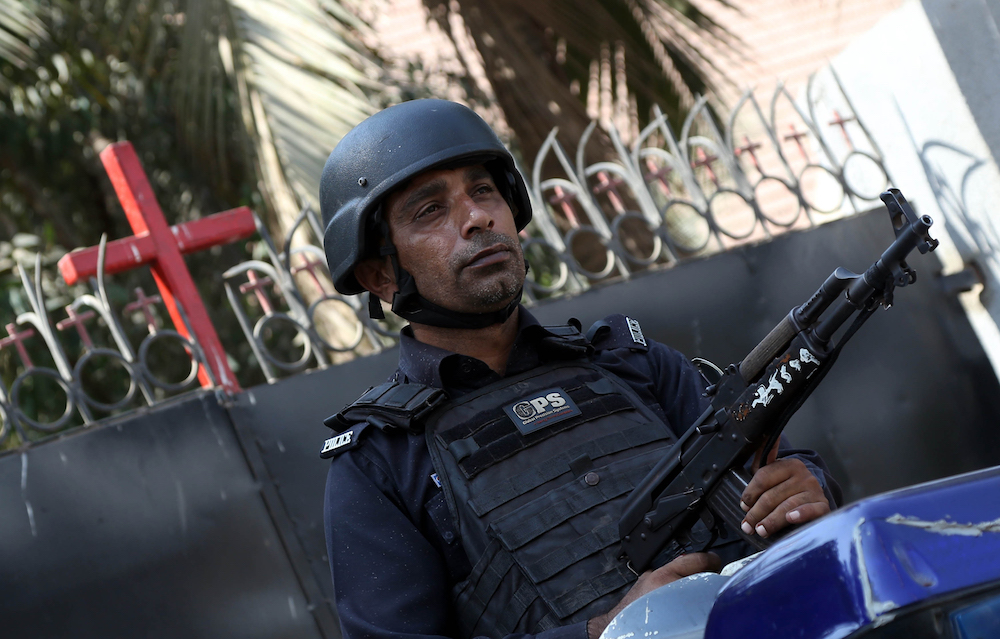Observers who’ve watched the dramatic case of Asia Bibi unfold over the past eight years said that despite some immediate backlash, the Pakistani Supreme Court’s decision Wednesday to acquit the Catholic mother of five of blasphemy charges marks a major step toward making the country a more modern, tolerant nation.
In comments to Crux, Father Bernard Cervellera, head of Asia News, said the decision to acquit Bibi “is something big,” and is proof that there are groups in Pakistan, even among Muslims, “who want a more modern Pakistan, more tied to the origins of this country. It must be a country that allows people to be free to practice their religion more than a state religion.”
Cervellera said the decision is also a show of courage from the judges, who sometimes cave into pressure from fundamentalist Islamic groups including death threats.
“This time, the judges had the courage to decree the acquittal,” he said, calling the move especially meaningful given the 2011 murder of Salmaan Taseer, who served as governor of Punjab and who was killed by his bodyguard for openly criticizing Pakistan’s strict anti-blasphemy laws and calling for Bibi’s pardon.
In 2009 Bibi was charged with blasphemy after fetching water for herself and fellow workers on a hot summer day. Two women refused to drink from the same container as a Christian, and days later Bibi was accused of speaking against Islam and the Quran and sentenced to death.
Bibi and her family have consistently denied the allegations, arguing that witness testimonies in the case were inconsistent, and that the blasphemy law was being used to settle a personal score.
On Wednesday, Pakistani Chief Justice Mian Saqib Nisar announced the court’s verdict on Bibi’s final appeal against the death penalty, saying the initial trial court ruling finding Bibi guilty was “reversed.”
“Her conviction is set aside, and she is to be [freed] forthwith if not required on other charges,” he said.
In comments to Crux, Shane Chaudhry, Executive Director of the Pakistani bishops’ conference National Council for Justice and Peace, said he was glad that “justice is served,” and that while late, the decision is “historic.”
The biggest concern in the aftermath of the ruling is security, he said, noting that schools have been closed early and roads have been blocked.
On Oct. 13, in anticipation of the Pakistani Supreme Court’s final ruling, the Tehreek-i-Labbaik Pakistan, an Islamic political party headed by Khadim Hussain Rizvi, threatened to “paralyze the country within hours if the Supreme Court sets Asia Bibi free.”
Ahead of the announcement of the Oct. 31 verdict, local law enforcement met with met court officials to work out a security strategy for possible reactions. As part of the measures, extra security has been provided around the area of the Supreme Court and at Christian sites and churches.
Roughly 300 police personnel and paramilitary units have been tasked with guarding the Supreme Court building and the Parliament, which sits across the street.
Paolo Affatato, head of the Asia desk for Fides News, told Crux that despite initial riots taking place Pakistan’s checkered history of politicians pushing for a more Islamic state, “today we can say that this is a good decision for Pakistan and for the future of Pakistan, because the rule of law was respected.”
“The judges ruled in total freedom, total independence, despite the pressures and despite the death threats they received, so all this is also good news,” he said, noting that while there might be problems or even violence in the short-term, “in the long-term, this is a step forward for the country, it’s an important step forward for the rejection of these blasphemy laws.”
Rejection of the blasphemy law, he said, can only be possible “if there is a great political movement, also in Parliament,” a possibility he sees as realistic since extremists, though present, occupy few seats.
Moderate groups who want democracy and religious tolerance have always been present in Pakistan, Affatato said, adding that with the Bibi ruling, “this could be the moment for the redaction of the blasphemy laws and this would do well for religious minorities, but also for many Muslims,” all of whom have been victims of terrorism.
Cervellera said the next step toward religious tolerance ought to begin with a reform of the Pakistani school system, as most schools are not public, but are dedicated to studying the Quran and which are supported “by fundamentalist groups who naturally create persons who want to fight other religions, and who want to create a fundamentalist Islamic state.”
Speaking to Crux, Thomas Heine-Geldern, Executive President of Aid to the Church in Need International, a papal foundation which has been active in supporting Bibi throughout the legal case, said the family’s plans are unknown, but given the protests and immediate backlash, he believes the Bibi’s will leave the country at least for a while.
Heine-Geldern said “it’s really a great day, and it’s a very, very important step, especially for Asia Bibi’s family to come back to normality, because now we have the verdict of the Supreme Court and she has to be released. Then we have to see how the family can start a normal life again.”
Though Bibi has been pardoned and will be released, they are not out of the woods yet, Heine-Geldern said, because “nobody has any clue how the fundamentalists will react,” and they must wait for the situation to play out.
The ruling, he said, is “a very important milestone for the whole process, it moves perfectly in the right direction, but we are not yet on the target, we have not yet won the complete race…there is more to do, more to pray and wait for. But it’s in the right direction, and there is solid foundation for hope.”
Crux’s Nirmala Carvalho also contributed to this story from Mumbai.

